Breaking, also known as breakdancing, made its Olympic debut in Paris, bringing a unique blend of athleticism and artistry to the world stage. Among the many performances, Australian b-girl Rachael Gunn, known as Raygun, stood out for her bold attempt to infuse her routine with Australian culture. Drawing inspiration from the iconic kangaroo, Raygun aimed to showcase her creativity and national pride. However, her performance, which scored zero points, quickly became the subject of online criticism.
In response, the breaking community and prominent figures in the sport rallied to her defense, emphasizing the importance of creativity and originality, which are central to breaking’s ethos. Despite the harsh judgment, Raygun’s experience has ignited discussions about the pressures athletes face in the spotlight and the critical need for mental health support in competitive sports. As breaking continues to evolve, the community’s support for Raygun underscores the enduring value of self-expression in the art form, setting the tone for its future in the Olympics and beyond.
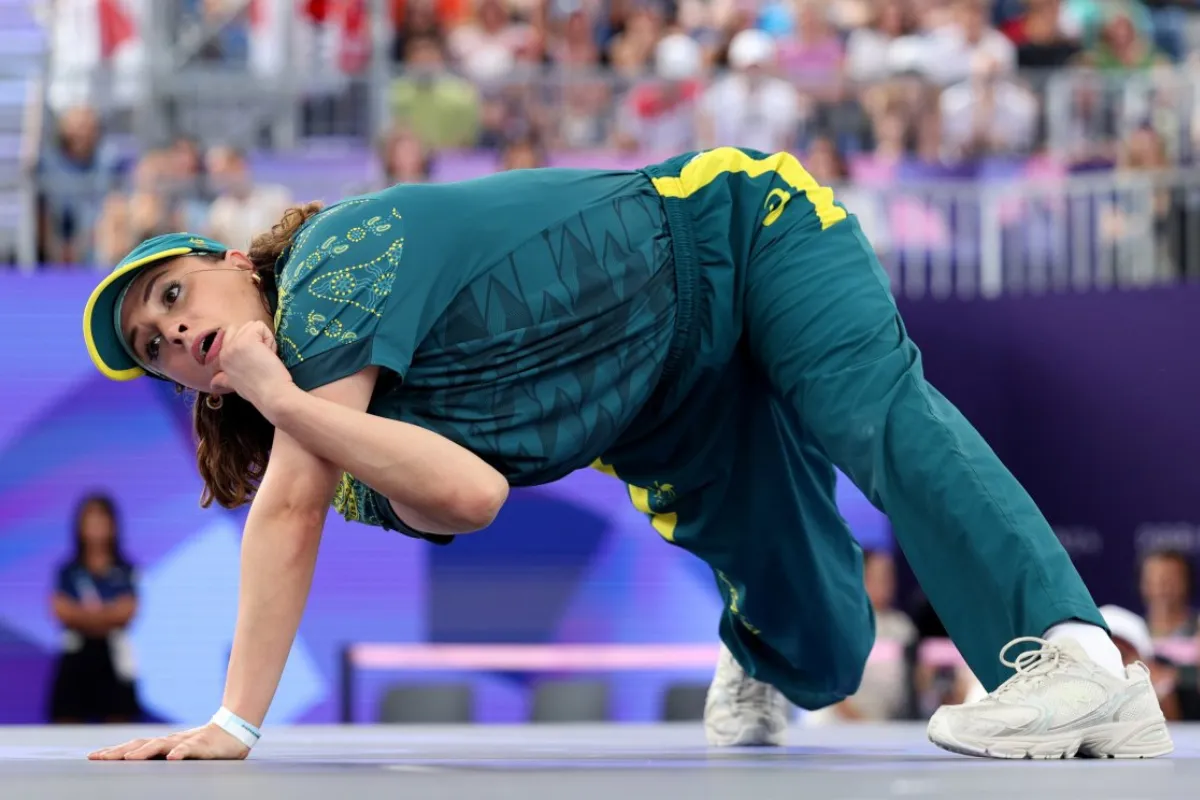
The Emergence of Breaking at the Paris Olympics
Breaking, more commonly known to the general public as breakdancing, made its debut as an Olympic sport at the Paris Games. This momentous occasion brought a new level of visibility to the art form, blending athleticism with creativity on a global stage. However, this debut also brought unexpected challenges, as seen in the case of Australian b-girl Rachael Gunn, known as Raygun. Her performance, which featured what has now been dubbed the “kangaroo dance,” led to a score of zero points and a subsequent wave of online criticism.
Raygun’s Performance and the Response from the Breaking Community
Raygun’s routine, which drew inspiration from Australia’s iconic kangaroo, was intended to showcase originality—one of the core tenets of breaking. Unfortunately, her creative expression did not resonate with the judges, leading to her receiving a score of zero. Despite this, the breaking community, alongside key figures in the sport, has rallied to her defense.
Head judge Martin Gilian, also known as MGbility, spoke out in support of Raygun, emphasizing that breaking is fundamentally about originality and the representation of one’s country or region through dance. According to MGbility, Raygun was staying true to this principle by incorporating elements unique to her Australian heritage into her performance. “Breaking is all about originality and bringing something new to the table,” MGbility explained at a press conference. “She got inspired by her surroundings, which in this case, for example, was a kangaroo.”
While MGbility acknowledged that Raygun’s technical level may not have been as high as some of her competitors, he was quick to point out that this did not detract from her effort or her achievement in reaching the Olympics in the first place. “She did her best. She won the Oceania qualifier. … Unfortunately for her, the other b-girls were better.”
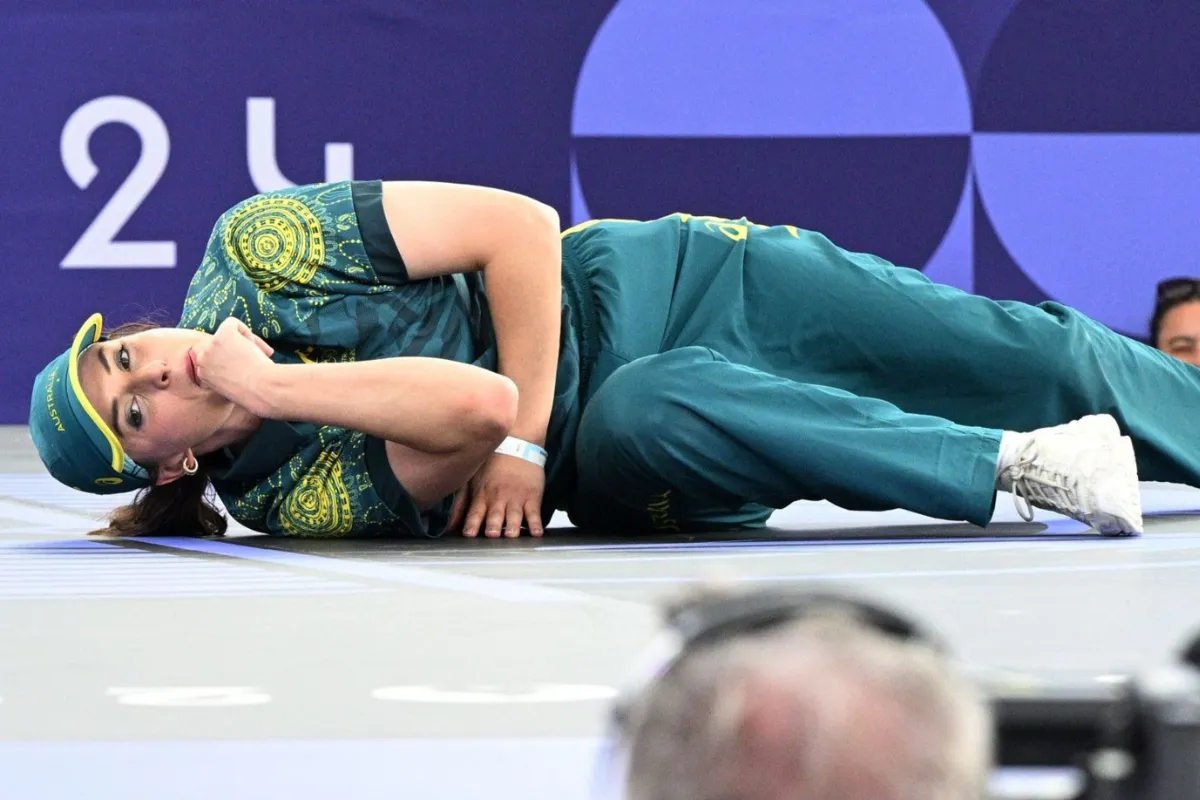
Mental Health Support and the Role of the Breaking Federation
In response to the wave of online criticism that followed Raygun’s performance, the World DanceSport Federation has taken active steps to support her mental well-being. Sergey Nifontov, the general secretary of the federation, highlighted the importance of mental safety for athletes in the wake of such incidents. “We offered (the) support of our safeguarding officer,” Nifontov stated. “We are aware of what has happened, especially on social media, and definitely we should put the safety of the athlete, in this case, mental safety in the first place.”
This proactive approach by the federation underscores the growing recognition of the mental health challenges that athletes can face, particularly in the digital age, where criticism can be widespread and immediate. The federation’s support for Raygun demonstrates a commitment to the well-being of its athletes, ensuring they have the necessary resources to cope with the pressures that come with competing on the world stage.
The Future of Breaking in the Olympics
As breaking’s Olympic journey continues, questions have arisen regarding its future in the Games. The sport is notably absent from the program for the Los Angeles 2028 Olympics, raising concerns among athletes and fans alike. Japan’s Ami Yuasa, known as b-girl Ami, who took home the gold medal in Paris, expressed her disappointment at breaking’s exclusion from the next Games. “I feel so sad about it not happening in Los Angeles, because breaking was born in the USA,” she said. “Breaking is not just a sport, it’s also expressing myself and art.”
The exclusion of breaking from the 2028 Olympics has led to debates about the sport’s place in the Olympic movement. However, federation president Shawn Tay defended the sport’s inclusion in Paris, emphasizing the significance of its Olympic debut. He acknowledged that the commercialization of breaking has been a point of contention but argued that its evolution into a competitive sport has pushed athletes to new heights.
“Right from the beginning we were warned that some of the breakers—the top breakers—may not take part,” Tay remarked. “But now we have achieved to bring them all in—we have all the best breakers. Now they are fighting for the glory of their country—it’s a totally different thing. And that’s actually pushed them to improve so much, to work so hard in a more scientific way.”
Raygun’s Impact on the Future of Breaking
Raygun’s experience at the Paris Olympics has ignited discussions about the direction and essence of breaking as it continues to grow and gain recognition on a global scale. Her performance, although met with criticism, serves as a reminder of the importance of creativity and individuality in the sport. The breaking community’s defense of Raygun highlights the value placed on these qualities, even in the face of competitive pressures.
As breaking continues to evolve, the balance between maintaining its artistic roots and adapting to the demands of a global sporting stage will be crucial. Raygun’s kangaroo dance, while unconventional, embodies the spirit of breaking—a sport born out of innovation, self-expression, and cultural representation. Her experience serves as both a lesson and a milestone for the community as it navigates its future within and beyond the Olympic Games.
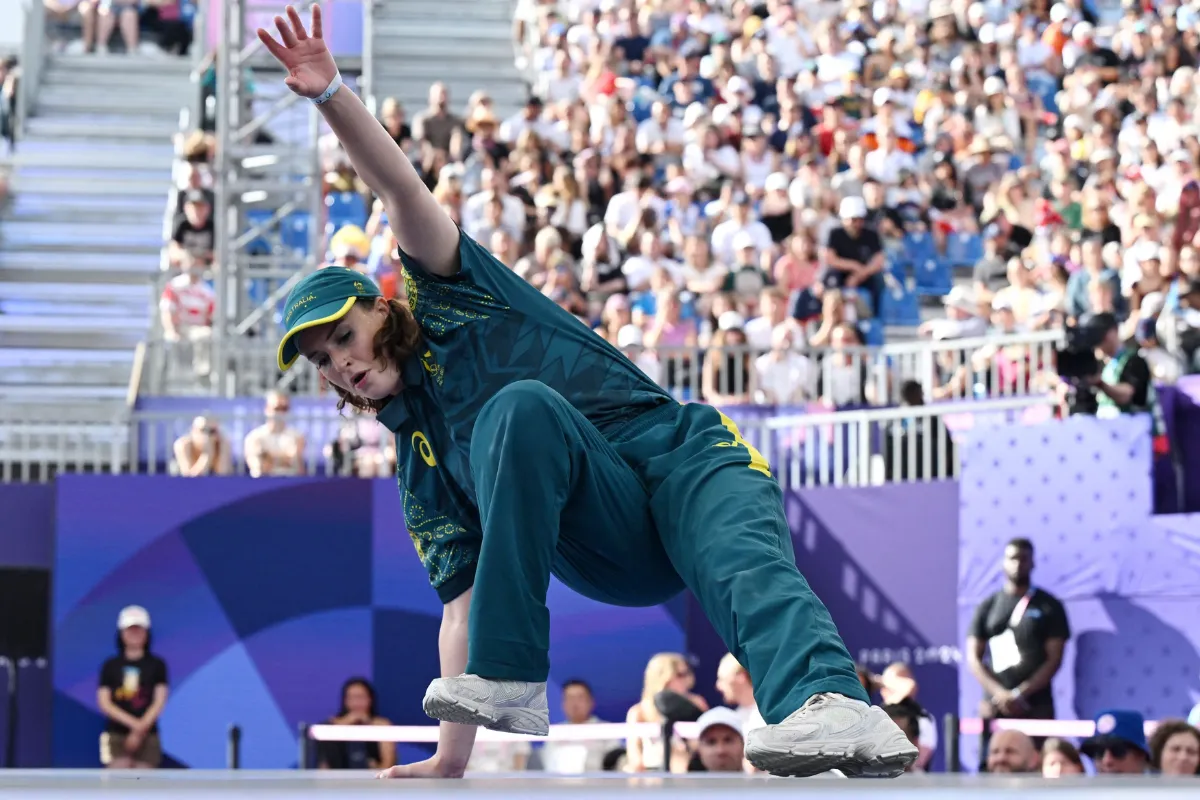
The Role of Mental Health in Modern Sports
Raygun’s story also brings to the forefront the issue of mental health in sports, particularly for athletes in newer or less mainstream disciplines. The swift action taken by the World DanceSport Federation to offer mental health support reflects a broader trend in the sports world, where the psychological well-being of athletes is increasingly recognized as being just as important as their physical health.
In an era where athletes are often subjected to intense scrutiny, both on and off the field, the need for comprehensive mental health support has never been greater. Raygun’s experience is a testament to the pressures that come with the spotlight, and it serves as a call to action for sports organizations to prioritize the mental well-being of their athletes.
Conclusion
The Paris Olympics marked a significant milestone for breaking, catapulting the art form onto one of the biggest stages in the world. While Raygun’s performance may not have been celebrated in the way she hoped, it has sparked important conversations about originality, mental health, and the future of breaking in the Olympic movement.
As the sport looks ahead to future Games, including the possibility of returning for Brisbane 2032, the breaking community will continue to grapple with these issues. The lessons learned from Raygun’s experience will undoubtedly shape the future of breaking, both as an art form and as a competitive sport. The community’s support for her underscores the values that have always been at the heart of breaking: creativity, resilience, and the courage to be different.
Author Profile
Latest entries
 Break DanceFebruary 23, 2025Tap Dancing vs. Clogging: How Do They Differ?
Break DanceFebruary 23, 2025Tap Dancing vs. Clogging: How Do They Differ? Break DanceFebruary 23, 2025Best Dance Competitions for Kids
Break DanceFebruary 23, 2025Best Dance Competitions for Kids Break DanceFebruary 23, 2025Master the Straddle Stretch for Splits
Break DanceFebruary 23, 2025Master the Straddle Stretch for Splits Break DanceFebruary 14, 2025The Art of Timing in Dance
Break DanceFebruary 14, 2025The Art of Timing in Dance
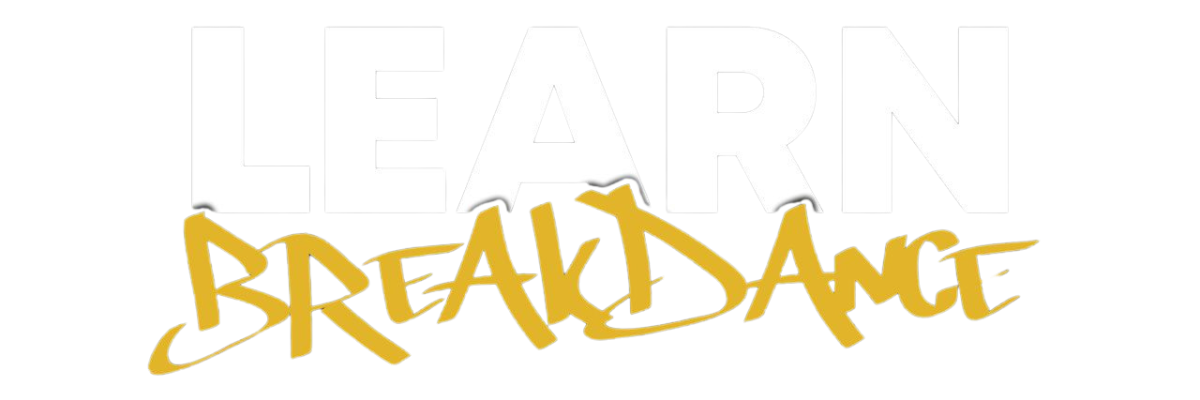
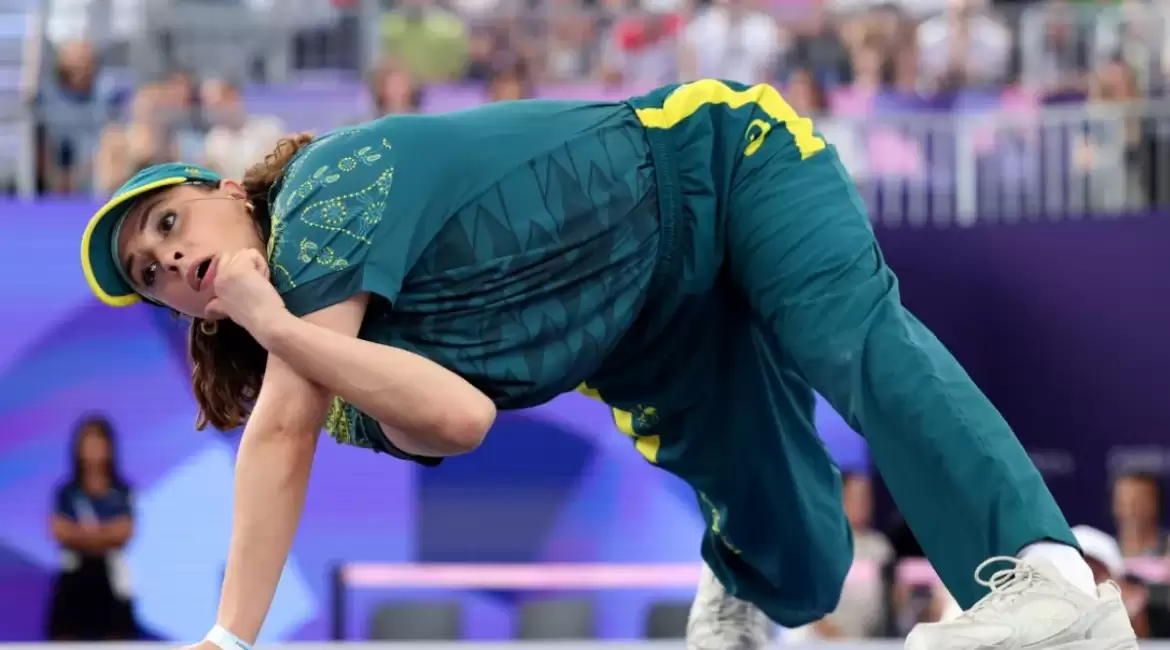

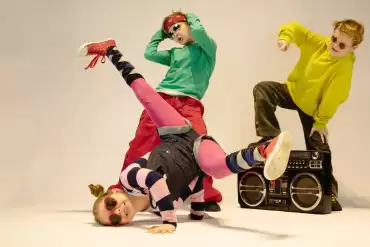
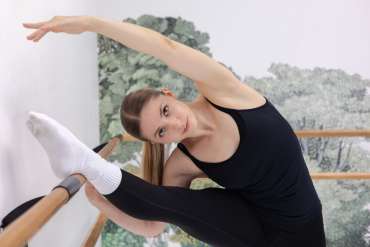

Leave a reply